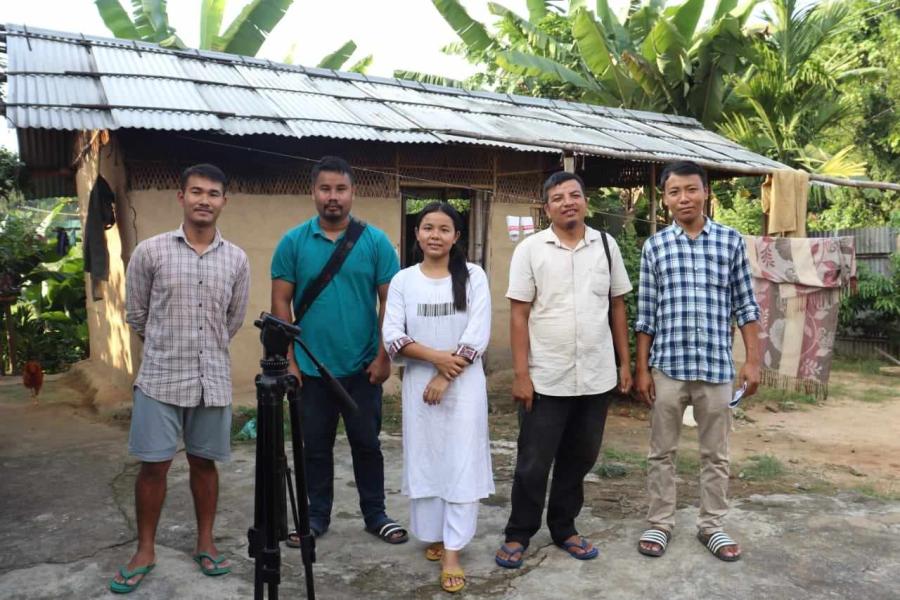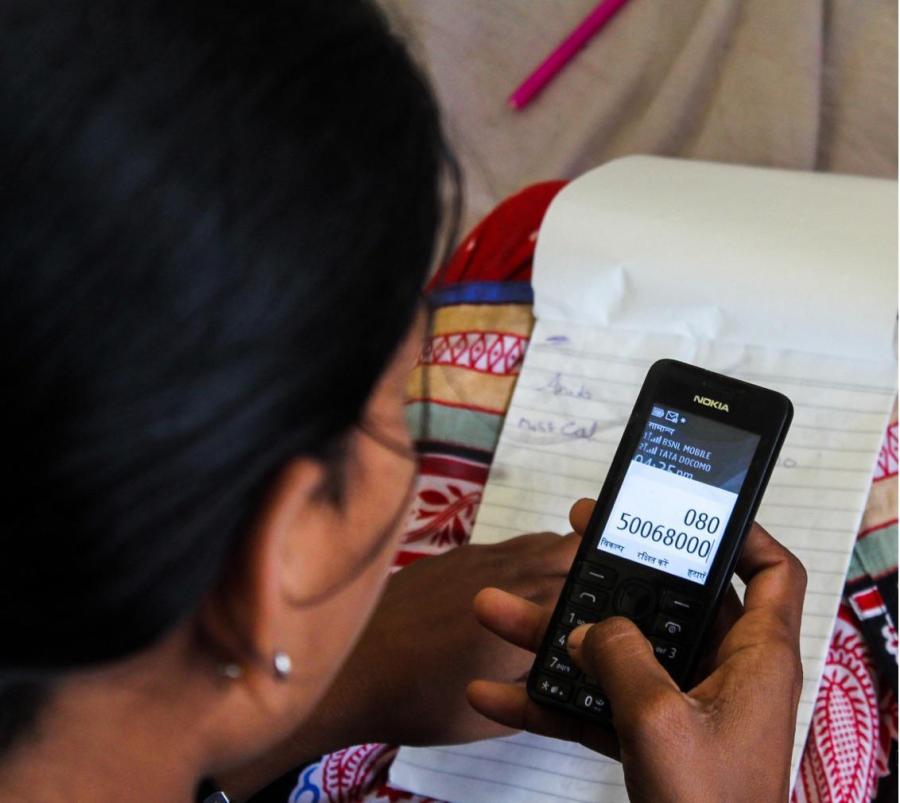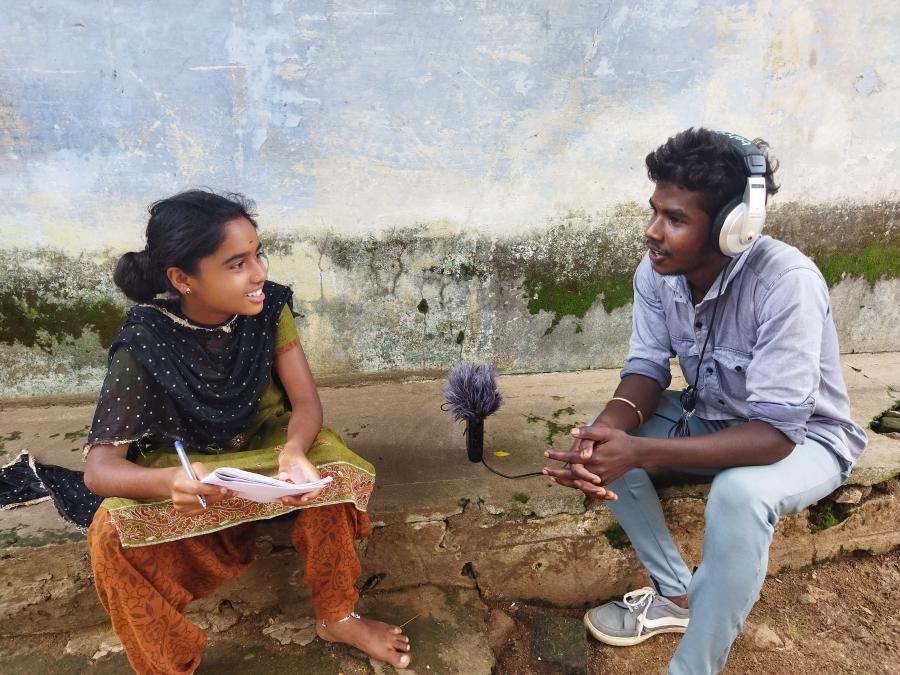It is Oct. 3, 2000, and a full day since I boarded a jeep to travel nine hours into the jungles of central India. The forests abound with the chattering of monkeys, parrots, and giant gliding squirrels. Eventually, my jeep staggers onto a dirt path leading to Hemalkasa, a village belonging to the Madais..
For close to 8,000 years the Madias have practiced a hunter-gatherer existence deep in the interior of Maharashtra state. Although dangers in the natural world make Madia life precarious, today these concerns are compounded by the added threat of encroaching logging companies and an exploitative Indian government. For 30 years they have counted on one friend, however: Dr. Prakash Amte, who in 1971 left "civilization" to set up a makeshift hospital deep within these jungles.
Dr. Amte laughs as he recalls those times. "For the first year, no one would come. They feared we would take advantage of them like other nonjunglites they had met." A breakthrough came when a troupe of Madia men took a hunting excursion near the hospital. Madias sleep in a circle around a fire; while their backs are to the fire, their fronts face the jungle, on the lookout for nocturnal predators. One man's back was severely burned, and the troupe had no choice but to carry him the short way to the hospital. When the newly bandaged man emerged a day later, treated and alive, the white gauze on his back became a billboard for the hospital.
Today, tribals will hoist the afflicted onto animal-hide stretchers and trek three days from remote corners of the jungle to see Dr. Amte. Only people in the most severe health conditions will make the difficult journey; bear maulings are the most common injury. Says Amte: "Bears eat only berries and termites, but they have huge canines which could only be for self-defense. When they dig for termites they are quite busy, and are easily startled by anyone nearby. A surprised bear will charge at a man and rip into his skull by inserting canines into his eye sockets." Such patients come to the hospital with their brains exposed and completely blinded. "Their ability to withstand pain is a wonder," says Amte.
Amte's work also includes the building of a school, a tool he believes is crucial to empowering indigenous peoples with knowledge of their legal rights. For years, government officials policing the jungles wanted to employ Madias as scouts. Employment meant paying Madias, whose economy runs on barter exchanges, five rupees a day -- the minimum hourly wage in India. Tribals throughout India face similar exploitation, such as being arrested and fined for "stealing" food from forests, decreed government property in India. "If we don't teach them to read, they will be cheated by everyone," says Amte. Today, 300 children attend the school, but Amte quickly points out that it is he who continues to be the student of the Madias. "They have been here for thousands of years, harming no one. We don't want to see them as civilized, but it is their society that is more peaceful, more just, than our own."
Peaceful and just are apt words. Madia society is based on cooperation and mutual coexistence, with females enjoying a social status equal to that of males. The male pays the female a dowry in order to marry her; if he is poor, he may work for her family to earn her. The Madia language lacks a term for rape.
Respect for nature and simplicity in lifestyle permeates all aspects of Madia culture. In a country that houses one of the oldest continuing religions in the world, the Madia religion is older still -- it is non-Hindu in origin, a worship of the mother goddess and her various powers. The Madia language is likewise neither Aryan nor Dravidian in basis; even words for father, mother, and water bear no resemblance to modern Indian words. The Madias have words for numbers only up to 20, and "have no need for [larger] numbers," Amte explains. "They are an absolutely practical people."
The Madias eat a variety of foods, mostly wild fruits, shoots, and roots from the forest, and meat from animals they hunt. Madias will eat all animals, including monkeys. The drinking of cow's milk is a recent introduction by Dr. Amte. Also new to their diet is rice, which supplements their sporadic wild grain collection.
Amte tries to interfere with Madia culture as little as possible, choosing only to help them survive in their natural habitat more safely. With schooling, future generations can guard against the wasteful, deceptive practices of the Indian government. Since the school's inception, two Madia men have gone on to attend medical school and will soon return to help their people as doctors.
As my visit ended, I vowed to return next year to visit these remarkable people and their courageous doctor. It is our obligation to ensure that these friends continue their joint existence: their struggles are our own, and their lives a distant echo of our own.
Article copyright Cultural Survival, Inc.



